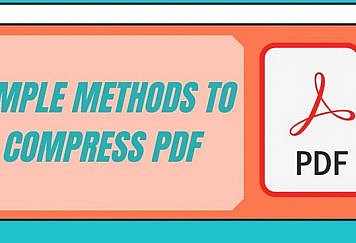Getting into any kind of auto accident can be stressful, but a truck accident brings its own set of unique challenges.
As truck accident statistics show, truck crashes tend to cause more severe injuries and much greater damage than a typical car crash. Unfortunately, the claims process after one of these devastating wrecks is often lengthy and difficult as well.
If your company seems to be stalling or delaying the handling of your truck accident claim, don’t panic. You have legal rights in this situation. By understanding common delay tactics used by insurers and knowing the proper ways to respond, you can effectively advocate for the settlement you deserve.
Watch For Typical Delay Tactics From Adjusters
Companies are businesses, and their primary motivation is minimizing costs and maximizing profits. As a result, many insurers use common stalling techniques to avoid paying out claims related to high-value truck crashes. Be alert for these delay tactics:
Lowball Opening Offers
An unreasonably low initial settlement offer forces you to negotiate and delays final resolution. Offers representing only a small fraction of realistic damages waste time by necessitating drawn-out counter-offers and documentation disputes.
Repetitive Requests For The Same Documentation
Asking accident victims to resubmit documentation provided previously represents a common method claims handlers use to artificially inflate workloads. When adjuster workloads seem overwhelming, claims sit waiting in queues for extended periods. Re-requesting records you have already given multiple times fits this delay strategy.
Medical Records Requests Excessively Far In The Past
Adjusters often ask truck accident victims to provide extensive medical history records, even those from childhood or decades prior not bearing relevance to crash injuries. Sorting through and acquiring so many old files bogs down patients as well as physicians, lawyers, and others involved in gathering this excessive paperwork, purposely delaying claims.
Numerous Written Forms And Documents To Complete
Another go-to technique for claims handlers involves requiring long lists of proprietary claim forms unique to each insurer to be filled out completely before advancing settlement talks. Questionnaires with 50-100+ questions, forms requiring personal financial disclosures, excess authorizations, and similar excessive paperwork requirements serve only to overburden claimants.
Recorded Statements Before Retaining Legal Counsel
Since crash victims typically lack legal expertise early in the claim process, it carriers strive to obtain official recorded statements from accident survivors without attorneys present. Later, insurers exploit confused, emotionally charged answers by claimants to justify lighter settlement offers or claim denials.
Knowing these approaches commonly used by companies allows you to identify them more quickly when adjusters use them to slow down your truck accident claim.
Other Known Company Delay Tactics Include:
- Seeking irrelevant data and documents to analyze
- Misplacing important claim documents and records
- “Losing” mailed or faxed claim correspondence
- Scheduling and then canceling Independent Medical Exams (IMEs)
- Disputing well-established injury diagnosis codes
- Challenging recommendations made by treating physicians
- Attempting to discredit medical specialists supporting your case
- Downplaying the severity of property damages based on photographs
- Minimizing any disabilities you now suffer by claiming pre-existing conditions
- Making access to claim managers extremely difficult for victims
- Refusing to respond to routine claim status inquiries from victims or attorneys
- Waiting until the last minute to accept or make settlement offers
- Pretending final approval documents got stuck in processing queues
Sadly, examples like these represent only a sample of the many ways some professionals actively impede claim resolution. Without honest, timely communication and transparency regarding delays when they happen, already traumatic experiences drag out even longer.
An Ounce Of Prevention
While you cannot control unreasonable behaviors from insurers, you can take proactive steps to defend your own best interests after any vehicle collision. Protect yourself by:
- Obtaining a police report at the accident scene listing involved drivers and companies
- Taking ample photos and video of property damages from all angles
- Getting contact information from witnesses while memories stay fresh
- Reviewing policies to understand claim procedures, requirements, and rights
- Keeping meticulous records like mileage logs and repair receipts
- Saving all communications related to your accident in one place
- Consulting reputable attorneys familiar with claim delay tactics used in your state
Arming yourself with documentation makes falsifying records, placing blame elsewhere, or using other trickery harder for carriers later.
Respond Promptly And Thoroughly To All Legitimate Requests
Though insurers do sometimes make unreasonable document demands, some requests serve legitimate purposes. Failing to provide truly needed information gives adjusters an excuse to delay your claim further. Any time you receive a request that seems justified given your injuries and damages, respond promptly and thoroughly.
Provide Newly Signed Medical Authorizations
Insurers must verify your medical status and treatment with healthcare providers to assess claim validity. Although you already complied with past authorization requests, supplying updated permissions aids prompt record collection.
Submit Ongoing Bills And Treatment Records
Keeping carriers abreast of emerging costs such as new diagnosis and procedure bills, pharmacy receipts, and other care expenses assists in accurate claim valuation. For example, if you suffered a spinal cord injury from a truck accident, you should submit bills and treatment records related to any treatment, therapy or medications you take as part of ongoing care.
Send Records Detailing Crash Damages
Documentation like accident scene photos, police reports, highway patrol investigations, accident recreation evaluations assessing physics involved, automotive repair shop written estimates, appraisals for personal property losses, and similar documentation establishes details on fault and calculates damages accurately.
Communicate About Changed Circumstances
Major life changes like job loss stemming from your injuries, the need to relocate for ongoing medical care, new facts from crash reconstruction evidence, or additions to household costs directly attributable to the incident also warrant submissions as supplementary documentation.
Answering legitimate requests quickly shows your full cooperation. More importantly, it provides fewer excuses for negligent adjusters seeking opportunities to classify claims as “non-responsive” on technicalities.
Put All Communications With The Company In Writing
While an adjuster may attempt to obtain information from you through phone calls or recorded statements, insist that all communications about your claim occur in writing going forward. Written correspondence avoids confusion and provides documentation you can reference later if questions arise.
Follow up any verbal exchange with an email summarizing key points from the discussion and restating your need for exclusively written communication about your claim. Maintain meticulous documentation including dates, names, questions asked, and information provided for all exchanges.
If an adjuster asks to schedule a recorded statement by phone, decline verbal proceedings.
Insisting on written exchanges almost always works favorably for claimants to prevent mischaracterizations of conversations later. Additionally, documenting claim communication chronologically aids the reconstruction of records should files become lost or destroyed.
Send Periodic Claim Status Letters To Prevent Stalling
Even if an company stops contacting you actively about your claim, it does not mean they have forgotten about you or that your claim is progressing properly behind the scenes. Lengthy gaps in communication from adjusters often indicate a claim growing stagnant.
You can shake loose delayed claims by sending periodic claim status letters to confirm progress. Send these letters once a month or once every two weeks depending on how long your claim has been pending. Each letter should:
- Restate the date of loss
- Note important claim milestones already achieved
- Identify any necessary documents you previously supplied
- Request confirmation that the claim remains open and active
- Ask for a written status update
- Provide a specific date you request return correspondence by
Politely yet firmly stating your expectation for ongoing written communication makes it harder for the company to continue brushing your claim aside. Maintain records of all status letters sent, logging dates mailed and confirmation of carrier receipt. Doing so provides proper evidence notifying insurers of your claim should legal escalation become necessary down the road due to continued delays.
Seek Legal Counsel Early To Advocate For You
Navigating the post-accident claims process on your own after a catastrophic truck crash can seem incredibly daunting. And so, before taking any step, it is important to find a truck accident lawyer near you and let them help you get the compensation that you deserve. This is a good idea because working with an experienced personal injury attorney levels the playing field substantially by providing critical knowledge and counsel.
An established accident law firm fiercely advocates for clients by:
- Gathering police reports, medical records, eyewitness statements, and other evidence to conclusively prove liability and damages
- Estimating the full value of your varied short and long-term injuries/losses with accuracy
- Forcefully negotiating optimum claim settlements with insurers
- Aggressively pursuing litigation options if carriers continue denying or delaying clear compensation
Retaining legal representation shortly after your truck accident occurs gets a knowledgeable advocate involved early to keep your claim moving forward properly against institutional resistance. Let’s examine why lawyers prove so pivotal.
They Understand Company Tactics
Seasoned attorneys who have negotiated injury claims against all major insurers for years recognize the most common delay and denial schemes used to avoid paying fair settlements. Unlike individuals immersed in their first devastating crash, lawyers anticipate adjuster stonewalling tactics proactively based on prior experiences with each carrier.
They Formally Demand Compliance
Companies and their legal teams take formal demand letters from law firms more seriously, knowing that seasoned attorneys can and will pursue litigation if claims remain obstructed or offers prove insufficient. Lawyers also notify relevant state departments regulating groups about systematic bad-faith behaviors, creating accountability.
They Have Investigative Resources
Law practices have extensive connections with medical experts across specialties along with accident forensic teams to validate injuries, properly assess collisions, and counter any minimizing arguments from insurers. If trucking companies or drivers attempt to shift blame, attorney investigations set the record straight.
They Are Highly Skilled Negotiators
Reaching fair claim resolutions requires hours of intense negotiations with carriers considering complex factors like lifetime care costs for permanent health damage. Personal injury lawyers routinely handle these complex talks armed with legal precedents and wisdom from past multi-million dollar settlements. Without seasoned negotiators fighting for your best interests, insurers stand to gain.
While attorney contracts vary considerably between firms and cases, many personal injury practices provide representation without any upfront fees or expenses to clients in return for taking pre-defined contingency cuts from any eventual settlements or court awards. That allows truck accident victims struggling financially after crashes to obtain top-notch legal support they could not access otherwise due to high hourly rates.
Taking this route also means little risk for accident survivors should litigation ultimately get rejected, prove unsuccessful, or resolve with lower rewards insufficient to cover a law practice’s invested efforts and trial costs. In those worst-case scenarios, clients face no repayment burdens for legal services secured on contingency themselves.
| Action | Purpose |
| Recognize typical delay tactics early | Identifying these tactics quickly lets you counter them |
| Reply to legitimate requests fully and quickly | Justifiable queries need fast, complete responses to prevent intentional delays |
| Insist all communication occurs in writing | Written records prevent confusion about conversations later |
| Send regular claim status letters | Consistent status letters stop quiet stagnation of claims |
| Retain experienced legal counsel ASAP | Lawyers fiercely advocate to prevent delays and resolve truck accident claims faster |
No matter what though, never forget your firm legal rights as the policyholder and injured claimant. Despite some carriers employing frustrating denial or delay methods, state and federal laws protect consumers against many bad faith practices used intentionally to avoid paying benefits legitimately owed after accidents.
What To Do Next When Faced With a Delayed Claim
Even if you take all of these steps, some carriers prove stubbornly resistant to paying fair settlements, even on strong injury claims. If you encounter continued delays from the carrier after submitting documentation, retaining legal counsel, and sending periodic claim status updates, consider these next actions:
File A Bad Faith Claim
Most states provide the right for accident victims to sue companies for failing to handle claims properly. Collect evidence like letters, records, and notes demonstrating how the insurer unnecessarily delayed your settlement despite cooperation. Then engage a personal injury law firm to pursue financial compensation for damages incurred by claim mishandling.
Submit Formal State Complaints
Commissioners regulate insurer compliance and fair claim activities in each state. File a detailed, written complaint reporting improper delays and requesting an investigation into the carrier’s practices. Consider requesting intervenor status letting you confer directly with reviewers assessing your allegations. Consult nearby attorneys on constructing effective complaints most likely to spur inquiries rather than getting dismissed indifferently by overloaded bureaus.
Attempt Mediation First
Mediators skilled in conflict resolution meet with both parties to find common ground settling complex claims outside rigid court structures. Highly cost-effective and faster than lawsuits, mediation makes progress possible if insurers participate voluntarily. If mutual resolutions fail though, little leverage exists compelling unwilling groups to offer fairer claim terms absent litigation threats from attorneys.
Ask Management To Assign Another Claims Handler
When original adjusters prove uncommunicative for extended times, request managers appoint new representatives to your claim. Fresh eyes reviewing stalled files prompt movement, as managers ensure newly assigned adjusters make progress to avoid the complaints summoned prior to handler changes.
Final Thoughts
No accident survivor wants to fight for fair compensation endlessly after suffering through a devastating truck crash. Understanding typical insurer delay tactics and then promptly employing written communication insisting on regular claim status updates minimizes the chances of claims getting brushed aside for lengthy times.
Should unacceptable delays continue anyway, formal complaints to regulators, bad faith litigation pursuits, and other options help remedy untenable situations created by apathetic carriers failing at their duties. Remember, several viable solutions exist making claim resolution possible eventually, even with unwilling insurers.
Follow TechStrange for more Technology, Business and Digital Marketing News.





